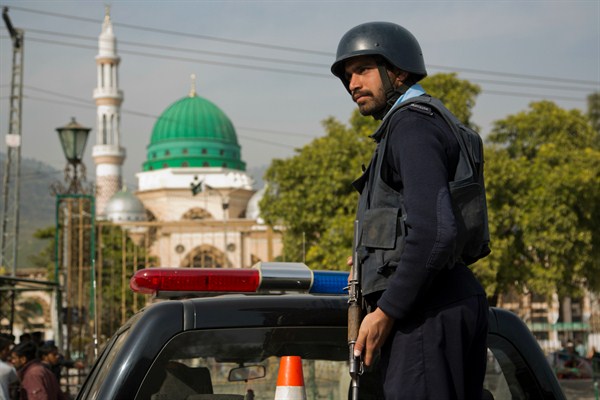During one week in mid-February, Pakistan suffered a series of terrorist attacks in all four of its provinces: Punjab, Sindh, Balochistan and Khyber Pakhtunkhwa. In all, 200 people were killed across the country in just seven days. Jamaat-ul-Ahrar, or JuA—a breakaway faction of the Pakistani Taliban, formally known as Tehrik-i-Taliban Pakistan, or TTP—claimed responsibility for the majority of the attacks, while the TTP and the self-proclaimed Islamic State claimed separate responsibility for others, including the Feb. 16 suicide bombing of a Sufi shrine in Sehwan that killed 90 people.
The multiple assaults perpetrated by different militants have raised concerns about the heightened presence and capabilities of terrorist groups in Pakistan. The Islamic State, JuA and TTP have all demonstrated the ability to stage attacks armed with guns or improvised explosive devices, as well as large-scale suicide bombings against both government and civilian targets.
Nevertheless, only JuA has managed to conduct attacks in every province of Pakistan, as well as the tribal regions. February’s assaults came after the group announced the start of a new offensive, which it dubbed Operation Ghazi, in a video message on Feb. 13, when it named legislative bodies, media outlets and state institutions as potential targets—but claimed it would not attack crowded areas such as markets and mosques. If that holds true, that would signal a divergence from JuA’s previous tactics, such as the March 2016 suicide bombing during Easter celebrations at the Gulshan-e-Iqbal Park in Lahore that killed more than 75 people and wounded 340 others.

